Loss of pandemic-era funding impacts Corpus Christi ISD after-school program
As pandemic-era education funding disappears, Corpus Christi ISD is bracing for impacts to learning loss recovery efforts like its after-school program.
The after-school program was funded by the Texas COVID Learning Acceleration Supports grant program. Both TCLAS and the third round of the Elementary and Secondary Emergency Education Relief Fund, another pandemic-era program, are coming to an end.
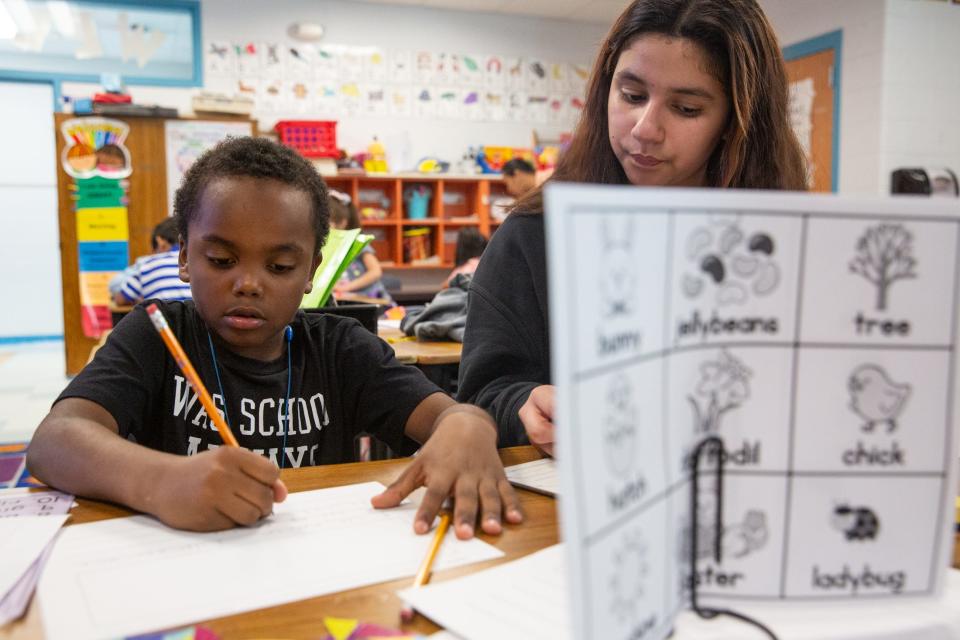
Next year, the district is partnering with the city of Corpus Christi and the Boys and Girls Club of the Coastal Bend to take over the after-school program.
This means that though many students will still have the opportunity to stay on campus after the school day ends for educational and enrichment activities, the district won’t be directly overseeing the programs.
But the programs will no longer be free for all participants.
Currently, there is no cost for students in the after-school program. Next year, there will be a sliding scale of fees based on family income. Some students might still be able to participate for free or at a reduced cost, but others will have to pay.
This year, 58% of after-school students were economically disadvantaged, which means they meet the income guidelines to qualify for free or reduced lunch.
The Corpus Christi ISD Board of Trustees heard Monday about the upcoming changes to the after-school program during a presentation about how grant spending.
“I’m so sorry to see this program going by the wayside,” Trustee Alice Upshaw Hawkins said.
Upshaw Hawkins said she would like to see if there was some way for the district to continue funding the after-school program.
“It is so important for our children to be able to have this extra help and the enrichment as well,” Upshaw Hawkins said. “I think it’s so necessary.”
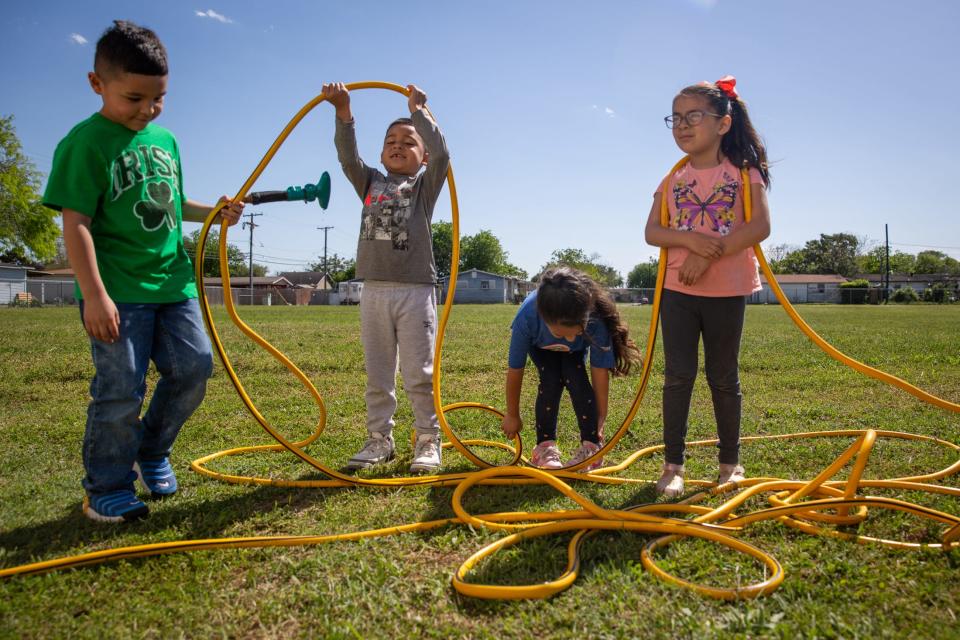
Trustee Jaime Arredondo shared similar comments.
“This is certainly a program that has been very successful,” Arredondo said. Superintendent Roland Hernandez said that learning loss is still a challenge for schools, and the district will have to budget carefully going forward.
“In some cases, we’re just not going to have what we had last year,” Hernandez said.
In addition to the loss of pandemic-era recovery funds, the district faces other financial challenges.
This year, Corpus Christi ISD’s budget included a $25.4 million deficit due to enrollment losses.
How have learning recovery programs impacted students?
Other initiatives include a Saturday school program that offered tutoring to more than 7,500 students. The district spent about $284,000 staffing the program, hosting four sessions in the fall semester and two sessions in the spring semester.
According to mid-year Measures of Academic Progress testing data presented to the board, 80% of elementary school students, 63% of middle school students and 74% of high school students increased their math performance after participating in Saturday school.
About 55% of students also improved reading performance.
The after-school program reached less students but offered more extensive daily tutoring.
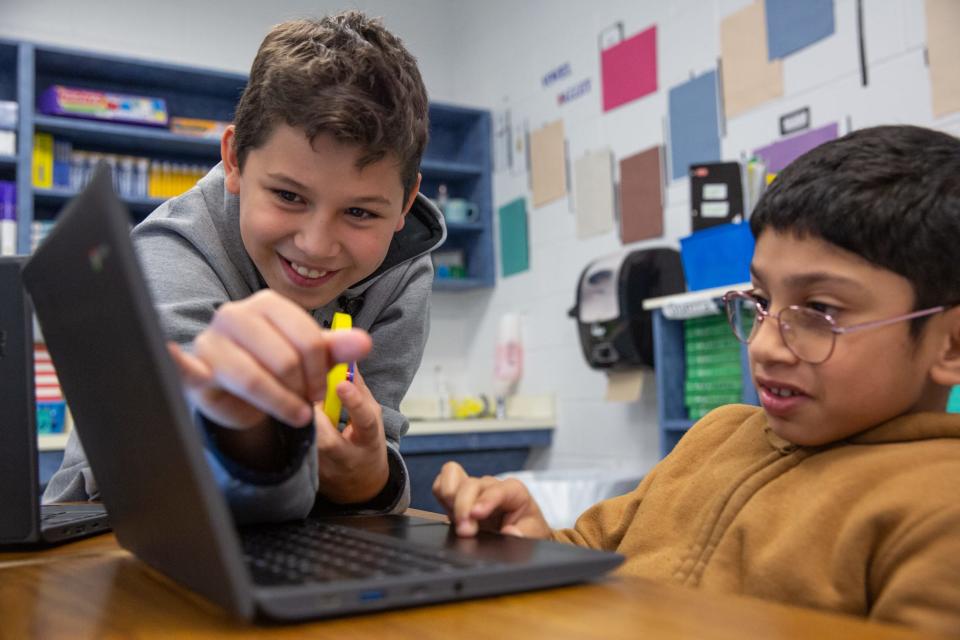
About 55% of students who attended after-school programs in the district showed growth in reading according to mid-year testing. More students improved in math — in third grade, 88% of students improved their math performance. In fourth and fifth grades, 82% and 67% respectively showed mid-year math improvement.
The after-school program served 1,913 enrolled students this year in pre-K through fifth grade. The district ran programs at 18 campuses — Allen, Fannin, Hicks, Los Encinos, Moore, Travis, Yeager, Oak Park, Menger, Houston, Garcia, Berlanga, Zavala, Shaw, Metro E, Kostoryz and Gibson elementary schools, as well as the Early Childhood Development Center.
The program is staffed by certified teachers, with each campus welcoming as many students as they could find teachers to serve. Demand was high for the program this year, and each campus had a waiting list of interested families hoping to get a spot.
Students with academic gaps and students with working parents were prioritized.
“Both achievement and growth data are showing that our students are making progress in meeting academic goals of the after-school program,” CCISD Title I and State Compensatory Education director Amanda Cameron said.
At Garcia Elementary, about 100 students participated.
For the first hour of the afternoon, students focus on tutoring. The last 45 minutes of the day is spent on enrichment, including activities like art, martial arts, karaoke and visits from petting zoos and therapy dogs.
“We have excellent teachers here, very dedicated,” Garcia Elementary School after-school program co-leader Nilda McMillan said. “They provide a whole bunch of different kinds of academic lessons to enhance the regular school day.”
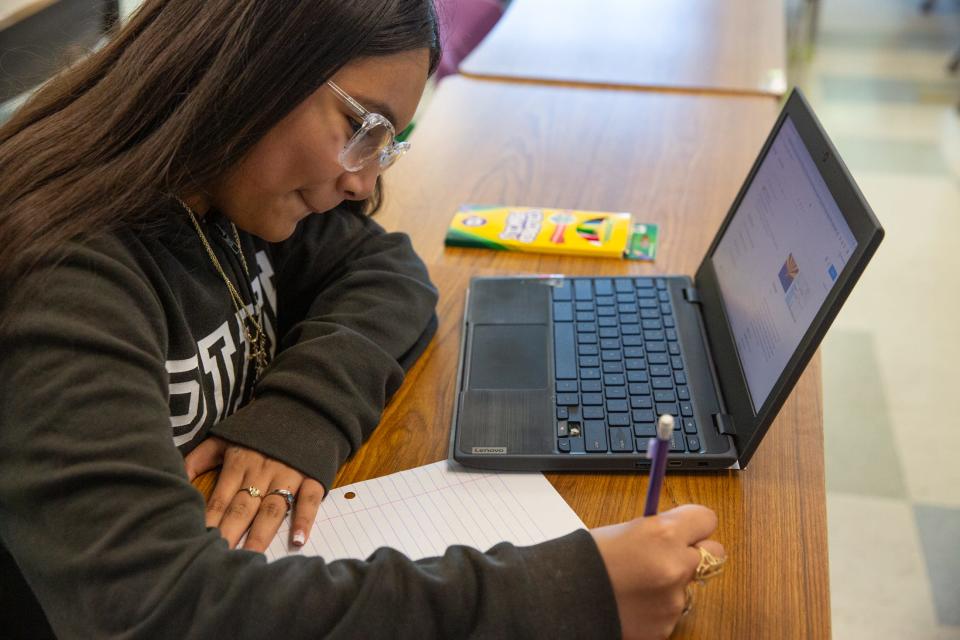
What will the after-school program look like next year?
The city’s Parks and Recreation Department and the Boys and Girls Club of the Coastal Bend plan to offer after-school programs next year.
Currently, the city’s After Hour Kid Power Program at over a dozen CCISD elementary schools not served by the district’s after-school program.
The city program runs Monday through Friday until 6 p.m. and aims to serve working parents who need a supervised place for their children to stay after school.
The city’s program offers recreational play and structured activities. This year, the program fees were set at $109 per month, though scholarships were available.
Next year, the Boys and Girls Club of the Coastal Bend will also be serving some campuses.
Teachers will provide tutoring next year, Cameron said, but the district won’t have as much oversight of the program.
“We have been working very, very hard with the city and with the city and the Boys and Girls Club for a long time,” deputy superintendent of curriculum and instruction Kimberly James said. “... I believe with (the district’s) guidance, they are going to try to incorporate many of the things that we have put in.”
James said the district was impressed by the curriculum the Boys and Girls Club plans to use with students.
“I feel like we’re moving in a good direction,” James said.
How is CCISD spending the last of its pandemic and learning loss recovery funds?
For this school year, CCISD has budgeted over $31 million in federal ESSER III funds. Over $14 million is going to learning recovery and acceleration. Over $12 million went to retention stipends for staff. The remaining ESSER III funds were budgeted for instructional materials, social and emotional support and indirect program costs.
In 2022-23, the breakdown of ESSER III spending looked a little different, with retention stipends making up over a third of spending. Learning recovery and acceleration accounted for 23.5% and technology enhancements accounted for about 15%. The district spent over $34.6 million in ESSER III funds last year. About $3.8 million was also spent on air quality improvements that year.
The year previous, it spent nearly $27 million, with over $12 million going towards learning recovery and acceleration, the largest category that year.
In total, the district received over $114 million from federal ESSER III and state TCLAS pandemic recovery grant programs.
The state TCLAS grant that funded the after-school program totaled $812,500.
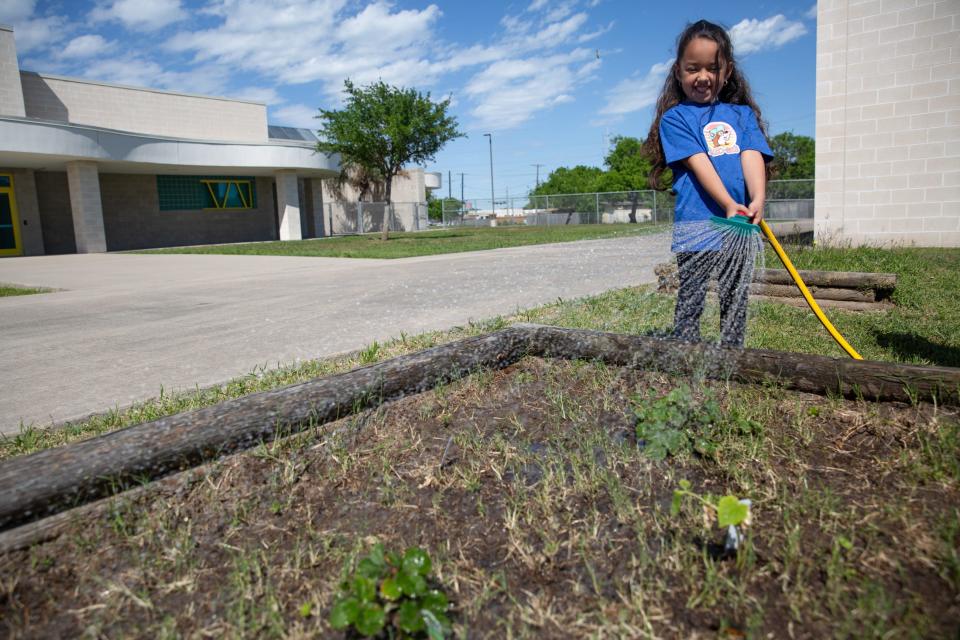
“We know exactly where the money is going to get a bang for the buck,” Hernandez said. “We have seen it. I think we just have to plan and budget that way so that we can continue giving that kind of support to our schools because the students definitely need it. We’re not done with learning recovery.”
Though pandemic recovery grant programs have expired, the district is pursuing other funding opportunities for 2024-25, including state and federal grants under the Every Student Succeeds Act and funding for career and technical education, special education, homeless children and youth education, accelerated learning and teacher residency programs.
“These grants are crucial for aiding learning recover, supporting our teachers and implementing research-based programs,” Cameron said.
State funds to boost Rockport-Fulton ISD welding program
Here's what progress Corpus Christi schools have made in adding seat belts to school buses
Elementary school students explore ragtime music at Piano Celebration Week
This article originally appeared on Corpus Christi Caller Times: Corpus Christi ISD preparing for changes to after-school program
